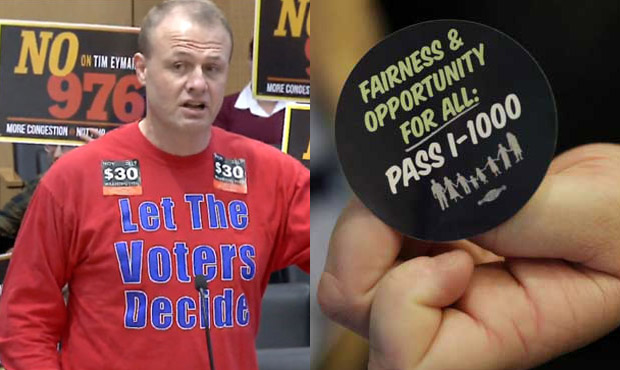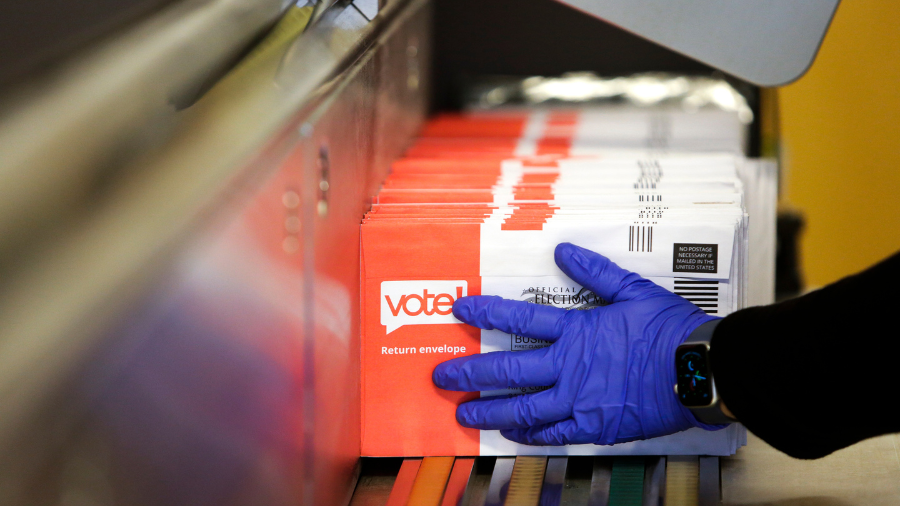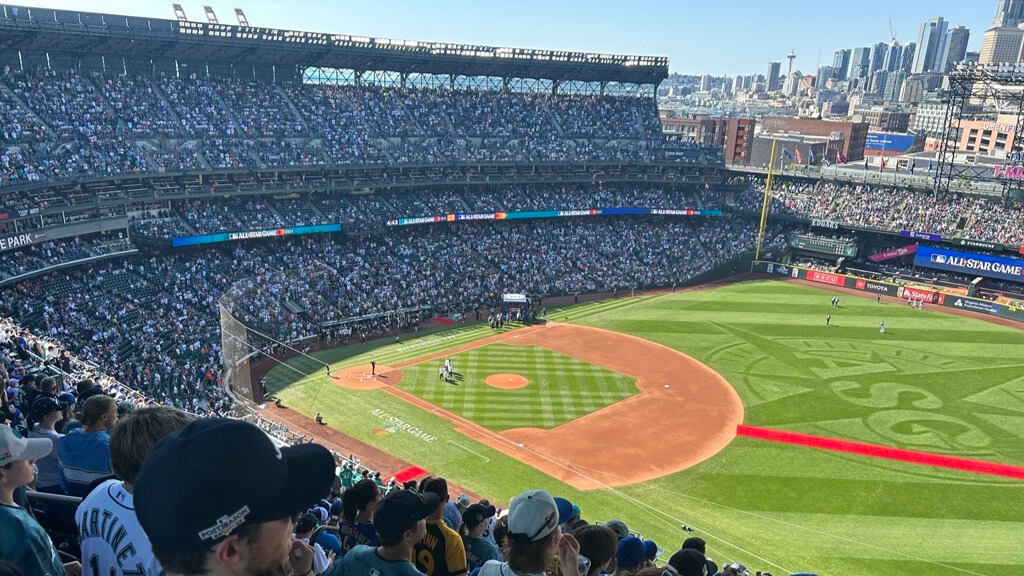Car tabs and affirmative action: A guide to Washington’s ballot measures
Oct 28, 2019, 3:08 PM | Updated: Nov 2, 2019, 8:19 am

Tim Eyman (Seattle Channel), and a button supporting I-1000 (AP Photo/Ted S. Warren)
(AP Photo/Ted S. Warren)
It may not be a presidential election year, but that doesn’t mean the stakes are low in Washington state this November. A pair of controversial initiatives are on the ballot in 2019, both of which have the potential to massively affect the state should they pass. To help voters understand each measure, we laid out the pros, cons, and everything in between for both.
Initiative 976
The basics: I-976 comes courtesy of anti-tax activist Tim Eyman. The initiative would reduce all vehicle registration renewal fees to a $30 flat rate. It would also base vehicle taxes on Kelley Blue Book value, and repeal authorization to impose vehicle excise taxes for regional transit authorities like Sound Transit.
Pros: Washington drivers have long lamented over the high price of car tab fees — depending on make, model, and year, tabs for some have cost up around $400 and above in recent years. That’s largely a result of Sound Transit 3, which pulls a sizable chunk of funding from car tabs. Sound Transit has been accused of being dishonest to voters in the run-up to ST3 concerning how cars would be valued, and how fees would be assessed. It admitted in court recently that it had inadvertently used a 1998 depreciation schedule to calculate car tab taxes, instead of the 1996 schedule laid out in ST3 legislation.
“…. Voters that are in favor of this measure aren’t doing it because they like me — they find that it is completely dishonest to be taxing people on a $10,000 car as if it was worth $25,000,” Eyman said.
Cons: Opponents of I-976 estimate that the measure would wipe out over $4 billion in crucial state, regional, and local transportation funding over the next decade. Sound Transit estimates a $20 billion impact through 2041, the combination of collecting $6.95 billion less in car tab revenues, and shelling out $13 billion more in higher interest costs in future transactions. Officials also forecast being forced to delay or cancel numerous transportation projects related to light rail, road maintenance, traffic relief, and more.
“We’re looking at enormous losses for people all over Washington state,” said Andrew Villeneuve with the Northwest Progressive Institute, who leads the “‘No’ on I-976” campaign.
Referendum 88 / Initiative 1000
The basics: While technically a vote on whether or not to repeal I-1000 — a measure approved by the state Legislature in April — you’ll see this on your ballot as Referendum 88. The measure allows the previously-approved I-1000 to go into effect, expressly allowing Washington state to implement affirmative action policies in public employment, education, and contracting. It also specifically does not allow the use of “preferential treatment” or quotas. In this case, “preferential treatment” is defined as using race, gender, ethnicity, age, etc. as the sole factor in hiring or admission standards.
Pros: Washington state hasn’t had affirmative action policies on the books for the better part of two decades, as one of just eight states that ban it entirely. Supporters argue that it’s a necessity for promoting racial equity, allowing public employers and schools to take race, ethnicity, national origin, sex, or age into account as one of many factors when making hiring or admission decisions. One of the biggest criticisms of affirmative action often relates to racial, ethnic, or gender-based quotas, which I-1000 expressly forbids the use of.
“I-1000 opens the door. That’s all it does,” said former Washington Governor Christine Gregoire. “It opens the door to qualified candidates who want to go to college, who want public employment, and want public contracting.”
Cons: Opponents argue that I-1000 will create divides between racial groups, and make Washington a less equitable state as a result. Some groups claim that it would specifically harm the Asian-American community, and reduce its overall representation. They point to schools like the University of Washington, where Asian-Americans make up 25 percent of the study body, despite making up a significantly smaller percentage of Seattle’s population (roughly 7 percent). The fear is that affirmative action could cause fewer Asian-Americans to be admitted to schools like UW in a bid to re-balance representation across all races.
“I believe that this referendum is going to create a race war,” Washington State Senator Ann Rivers told KIRO Radio’s Candy, Mike, and Todd Show. “So we have minorities pitted against minorities in an effort to be the most favored minority or a favored minority.”
Check out the Washington State Voters’ Guide for more information on several Advisory Votes and State Joint Resolution No. 8200.












